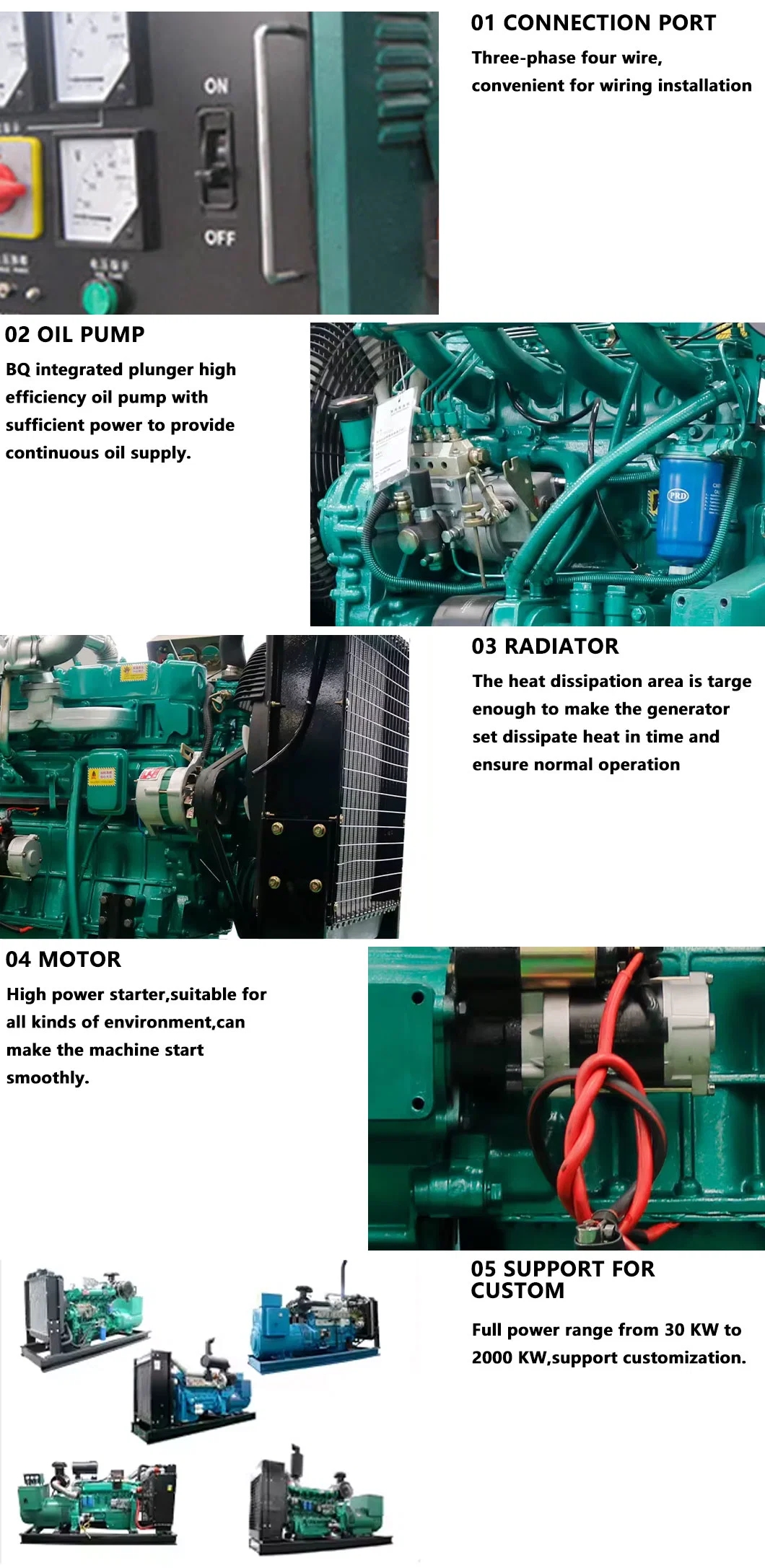Diesel Generators for Resistive Loads An In-depth Guide
Introduction
Diesel generators are a popular choice for providing backup power in various settings, especially for resistive loads. Resistive loads are devices that convert electrical energy into heat, light, or mechanical energy. Common examples include incandescent lights, electric heaters, toasters, and heating elements in appliances. In this article, we will explore the characteristics of diesel generators, their suitability for resistive loads, and important considerations for selecting and operating diesel generators in such applications.
1. Understanding Diesel Generators
A diesel generator is a combination of a diesel engine and an electric generator (alternator), designed to generate electricity. Diesel generators are known for their reliability, durability, and fuel efficiency, making them a popular choice for both standby and prime power applications. The diesel engine drives the alternator, which converts mechanical energy into electrical energy through the process of electromagnetic induction.
1.1 Components of a Diesel Generator
- Diesel Engine: The heart of the diesel generator, responsible for converting diesel fuel into mechanical energy.
- Alternator: Converts the mechanical energy from the engine into electrical energy.
- Voltage Regulator: Maintains a stable output voltage by adjusting the excitation current to the alternator.
- Cooling System: Prevents the engine from overheating during operation.
- Fuel System: Supplies diesel fuel to the engine for combustion.
- Exhaust System: Removes exhaust gases from the engine to the atmosphere.
2. Suitability of Diesel Generators for Resistive Loads
Diesel generators are well-suited for resistive loads due to their ability to provide stable and reliable power output. Resistive loads have a consistent power draw and do not introduce fluctuations or power surges, making them compatible with the consistent power delivery of diesel generators. Additionally, diesel generators are capable of handling high loads for extended periods, making them ideal for powering resistive devices that require continuous operation.
3. Considerations for Selecting a Diesel Generator for Resistive Loads
When choosing a diesel generator for resistive loads, several factors should be taken into consideration to ensure the generator meets the power requirements of the load and operates efficiently.
3.1 Power Rating
The power rating of the diesel generator should match or exceed the total power consumption of the resistive loads it will be powering. It is essential to calculate the total wattage of all connected resistive devices to determine the generator's power requirements accurately.
3.2 Voltage and Frequency
Resistive loads typically operate on standard voltage and frequency levels. When selecting a diesel generator, ensure that it can provide the required voltage and frequency to power the resistive devices effectively.

3.3 Fuel Efficiency
Diesel generators are known for their fuel efficiency compared to other types of generators. Consider the fuel consumption rate of the generator to determine operating costs and overall efficiency when powering resistive loads continuously.
3.4 Run Time and Fuel Tank Capacity
For applications with extended power outages, consider the run time of the diesel generator on a full tank of fuel. A larger fuel tank capacity will allow the generator to operate for longer periods without the need for frequent refueling.
3.5 Noise Level
Diesel generators can produce noise during operation, which may be a consideration depending on the application. Choose a generator with a noise level that complies with regulations and is suitable for the environment in which it will be used.
4. Operating Diesel Generators for Resistive Loads
Proper operation and maintenance of diesel generators are essential to ensure reliable performance when powering resistive loads. Follow these tips for optimal operation:
4.1 Regular Maintenance
Schedule routine maintenance checks for the diesel generator, including oil changes, filter replacements, and inspection of critical components. Proper maintenance will extend the life of the generator and prevent unexpected failures.
4.2 Load Management
Avoid overloading the diesel generator beyond its rated capacity. Monitor the power consumption of resistive loads and ensure that the total load does not exceed the generator's capacity to prevent damage and inefficiency.
4.3 Fuel Quality
Use high-quality diesel fuel to ensure optimal performance and efficiency of the generator. Contaminated or How to choose the right 400kW generator -quality fuel can lead to engine issues and reduced reliability.
4.4 Cooling System Maintenance
The cooling system of the diesel generator plays a crucial role in regulating the engine temperature. Keep the cooling system clean and well-maintained to prevent overheating and ensure efficient operation.
4.5 Monitoring and Remote Operation
Install monitoring systems to track the performance and status of the diesel generator remotely. Remote operation capabilities allow for quick response to any issues that may arise during operation.
5. Advantages of Diesel Generators for Resistive Loads
Diesel generators offer several advantages when powering resistive loads, making them a preferred choice in various applications:
5.1 Reliability
Diesel generators are known for their reliability and durability, providing consistent power output for resistive loads without fluctuations or interruptions.
5.2 Fuel Efficiency
Diesel engines are more fuel-efficient compared to gasoline engines, resulting in lower operating costs when powering resistive loads continuously.
5.3 Longevity
Properly maintained diesel generators have a long operational life, making them a cost-effective investment for powering resistive loads over an extended period.
5.4 High Power Output
Diesel generators can deliver high power output, making them suitable for resistive loads that require substantial electrical energy.
6. Conclusion
Diesel generators are a reliable and efficient power source for resistive loads, offering stable power output and durability in various applications. By understanding the characteristics of diesel generators, selecting the right generator for the power requirements of resistive loads, and following proper operation and maintenance practices, users can ensure optimal performance and longevity of the generator. Consider the factors discussed in this article when choosing a diesel generator for resistive loads to meet your power needs effectively.